D-ILA Projector Series
Ultimate High Dynamic Range
8K. LASER. HDR
Supports Frame Adapt HDR Generation 2*1 Dynamic Tone Mapping, HDR10 Plus Signal Format, and More
HDR (High Dynamic Range) drastically improves expressive power of images
When it comes to reproducing the rich video information of HDR content, including the extended brightness range, BT.2020 wide color gamut and 10-bit gradation, rely on one of the new D-ILA projectors. New models support all HDR formats including HDR10 for Blu-ray and streaming, HLG for broadcasting, and the latest HDR10+ signal format with dynamic metadata compatibility.
Support for two dynamic tone mappings
JVC projectors are compatible with the two dynamic tone mappings of HDR10+ and Frame Adapt HDR. HDR10+ contains the metadata of the producer’s intentions for each scene, and with such data, the projector is able to automatically reproduce images as the creator had planned. Frame Adapt HDR instantly analyses the peak brightness in HDR10 content using an original algorithm, and adjusts to the optimal dynamic range for image projection. Even content without mastering information can be analyzed based on the input signal, so all kinds of HDR10 content can be viewed with optimal picture quality.
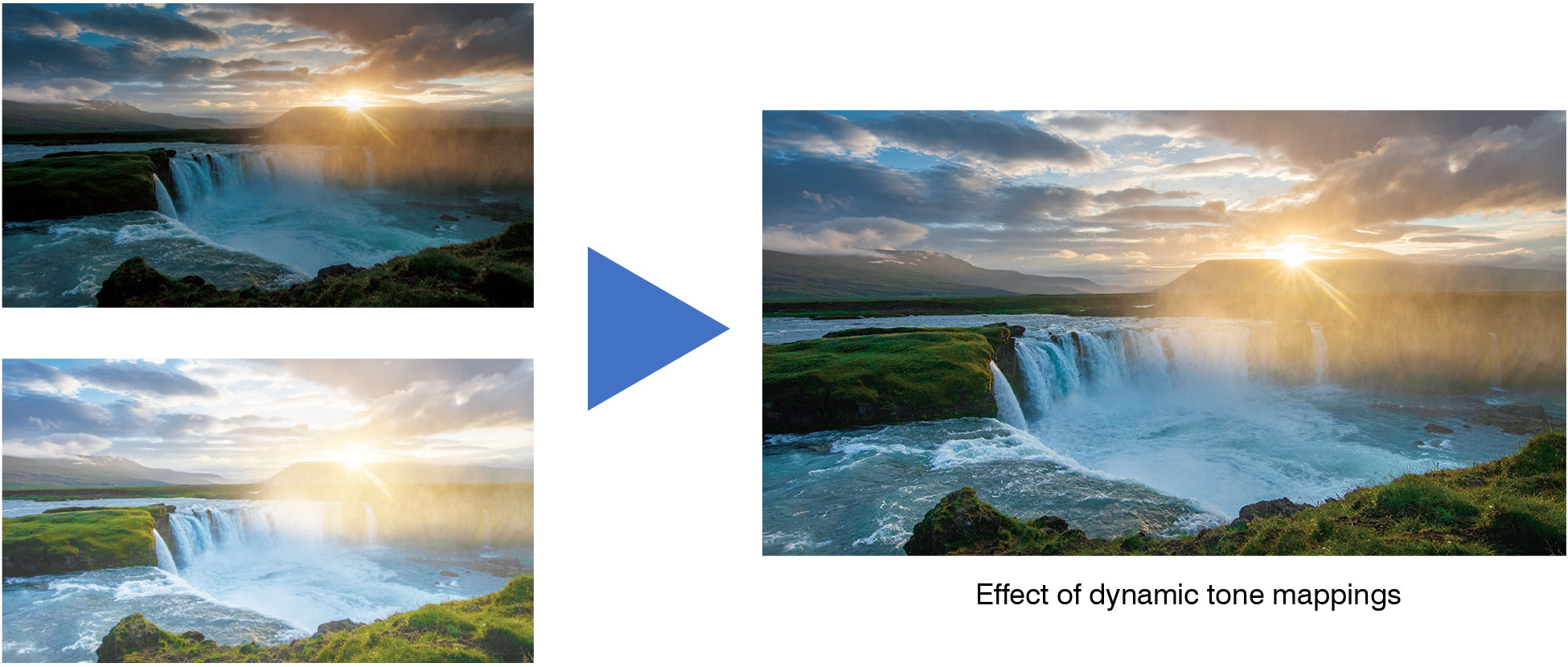
HDR10+ described
In HDR10, the basic standard for reproducing HDR content, there are only two pieces of information: MaxCLL, which represents the maximum brightness of the content, and MaxFALL, which represents the average maximum brightness. However with HDR10+, the luminance information for each scene is embedded in the content as metadata, which allows for scene-specific tone mapping and faithfully reproduces the HDR image intended by the creator.
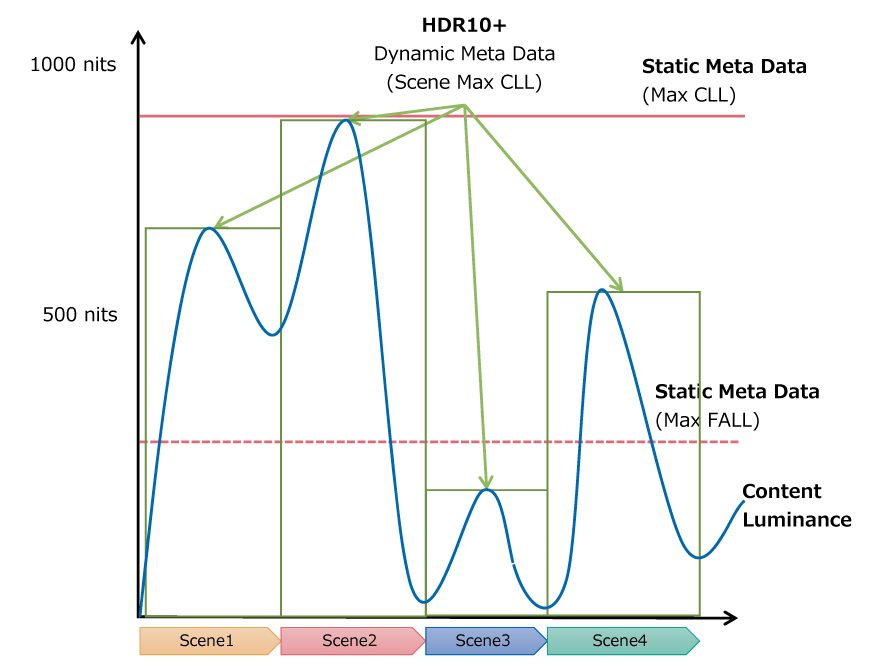
As described in the graph, HDR10 only contains static metadata, which can cause certain scenes to be too bright or too dark. On the contrary, HDR10+ contains dynamic metadata, specifically peak luminance information for each scene, making it possible to control the optimal brightness according to the scene and display the content with optimal brightness.
Frame Adapt HDR Generation 2*1
- NZ9
- NZ8
- NZ7
- NP5
The Frame Adapt HDR technology, which uses a proprietary algorithm to instantaneously analyze the maximum brightness of HDR10 content per frame and adjust the dynamic range in real time to the optimum range for video projection on projectors, has evolved into the second generation. As the culmination of the HDR image processing technology that has been cultivated up to now, the tone mapping algorithm has been completely reexamined in accordance with the scene and frame to achieve HDR images with higher definition creating an immersive three-dimensional feeling by suppressing the whiteness especially in the high brightness area. In addition, the proprietary algorithm for tone curve selection has been improved to reproduce HDR images that are brighter, more colorful, and have a wider dynamic range.
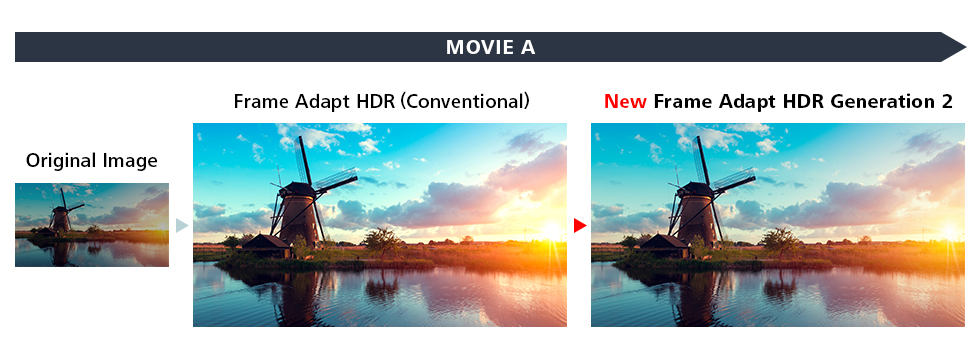
Theater Optimizer for optimal reproduction of HDR content suitable to each environment
Brightness of the projector screen varies depending on the screen size, gain, frequency of use, and Setting. JVC projectors intelligently adjust tone mapping so that the content can be viewed at the appropriate brightness by automatically analyzing the environment in which the projector is used, simply by entering the screen size and gain information under Theater Optimizer in the Frame Adapt HDR picture mode. This ensures reference picture quality at the appropriate brightness, suitable to each custom home theater environment.
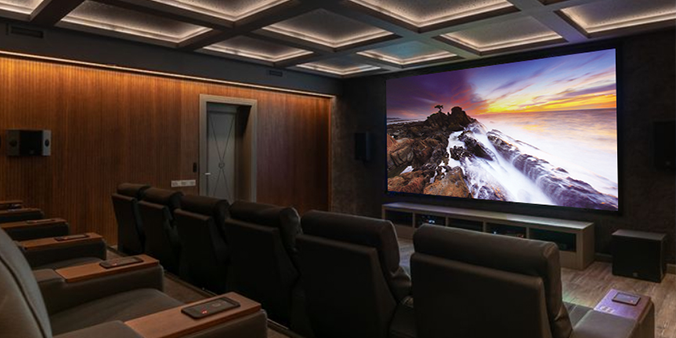
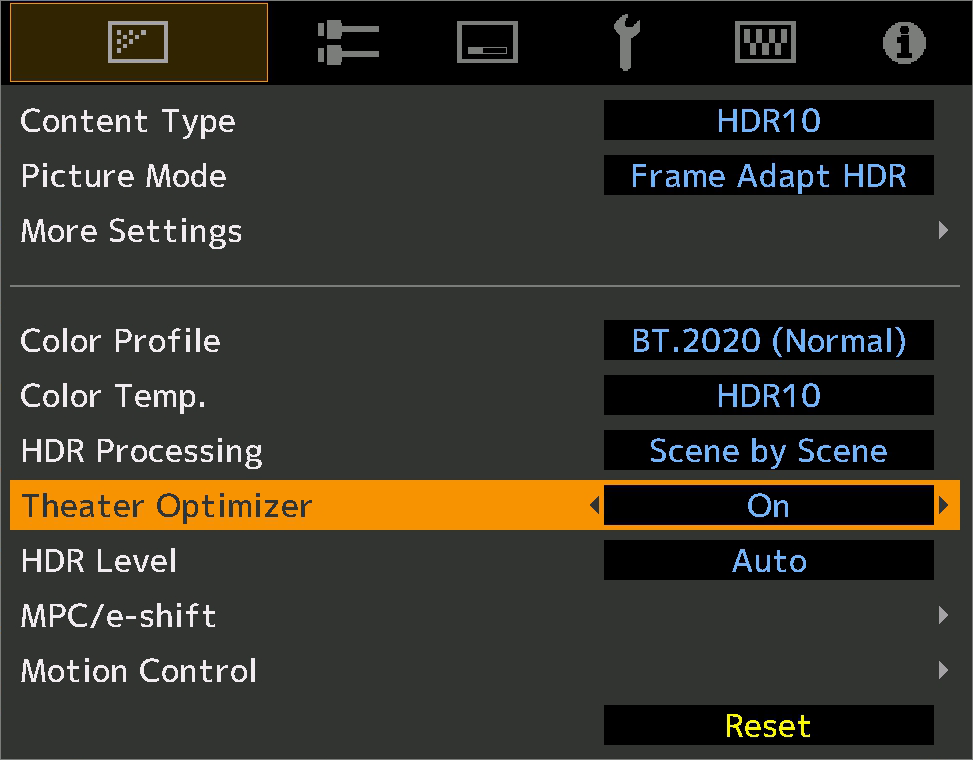
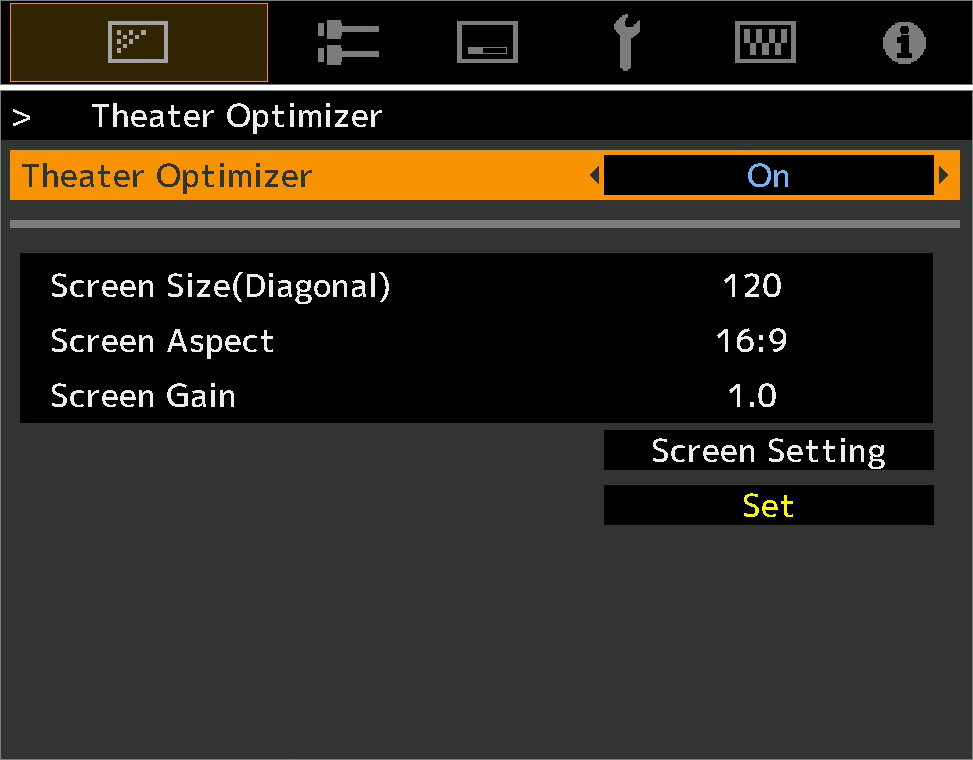
JVC projectors featuring Frame Adapt HDR and Theater Optimizer can express HDR/HDR10+ content at optimum brightness and darkness in each scene as the creator intended.
FILMMAKER MODE™ that faithfully recreates the creator’s intentions
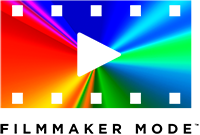
FILMMAKER MODE™ was developed by the UHD Alliance, an organization of Hollywood movie studios, TV studios, content distributors, consumer electronics manufacturers, and device developers, with the aim of faithfully reproducing the filmmakers' intentions in the home. When using this mode, picture quality adjustment functions such as frame interpolation and noise reduction are turned off, and the color temperature is set to D65 (6500K), allowing users to enjoy movies and documentaries with picture quality that is faithful to the original master.
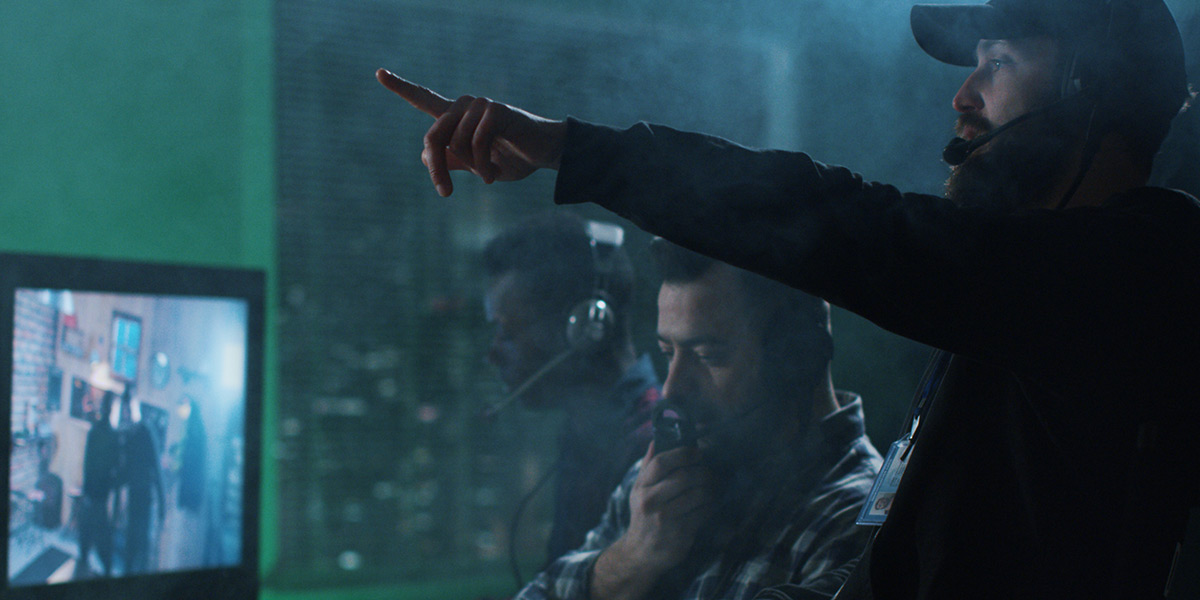
*1 : The feature will be available through a firmware update scheduled for November 2023.